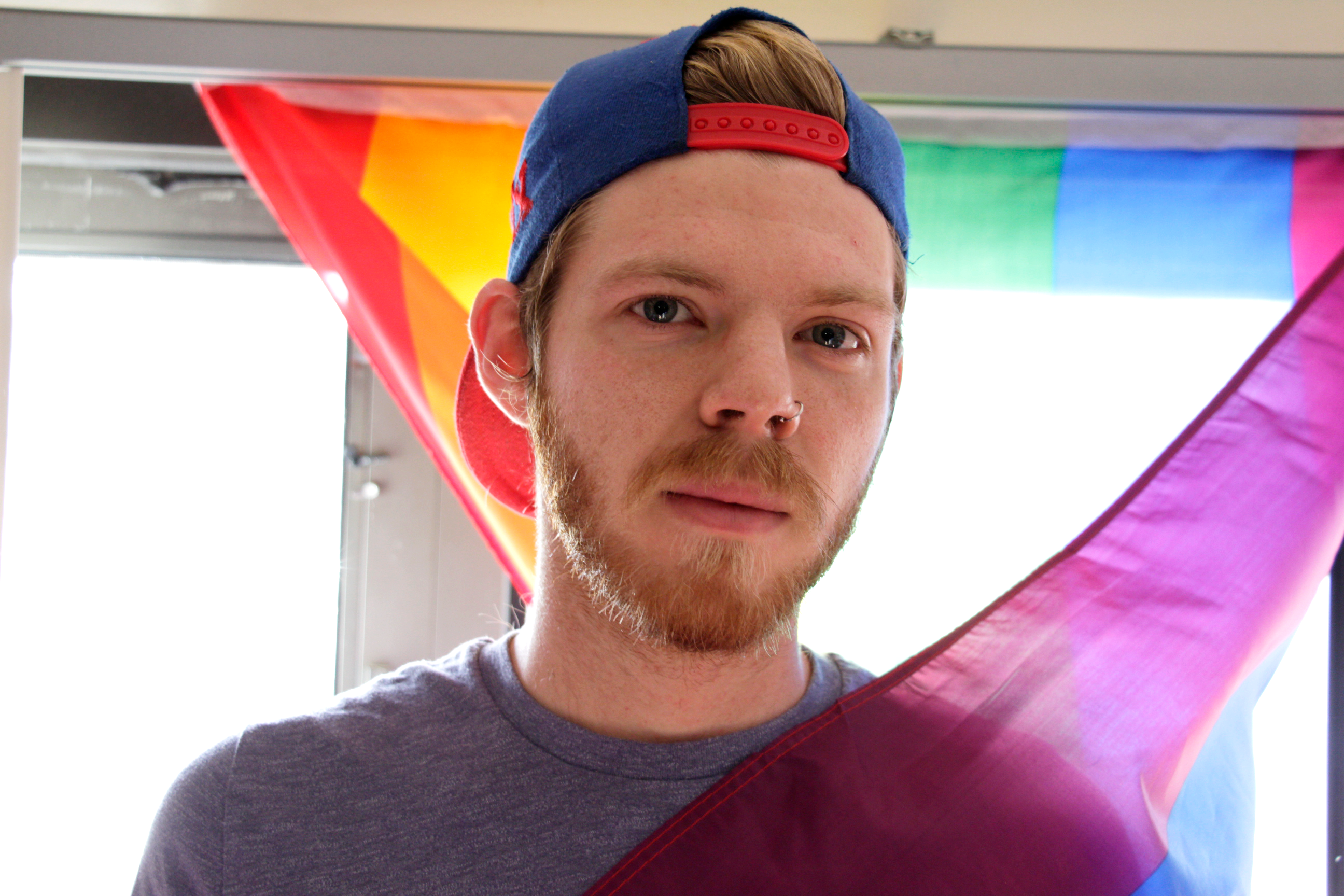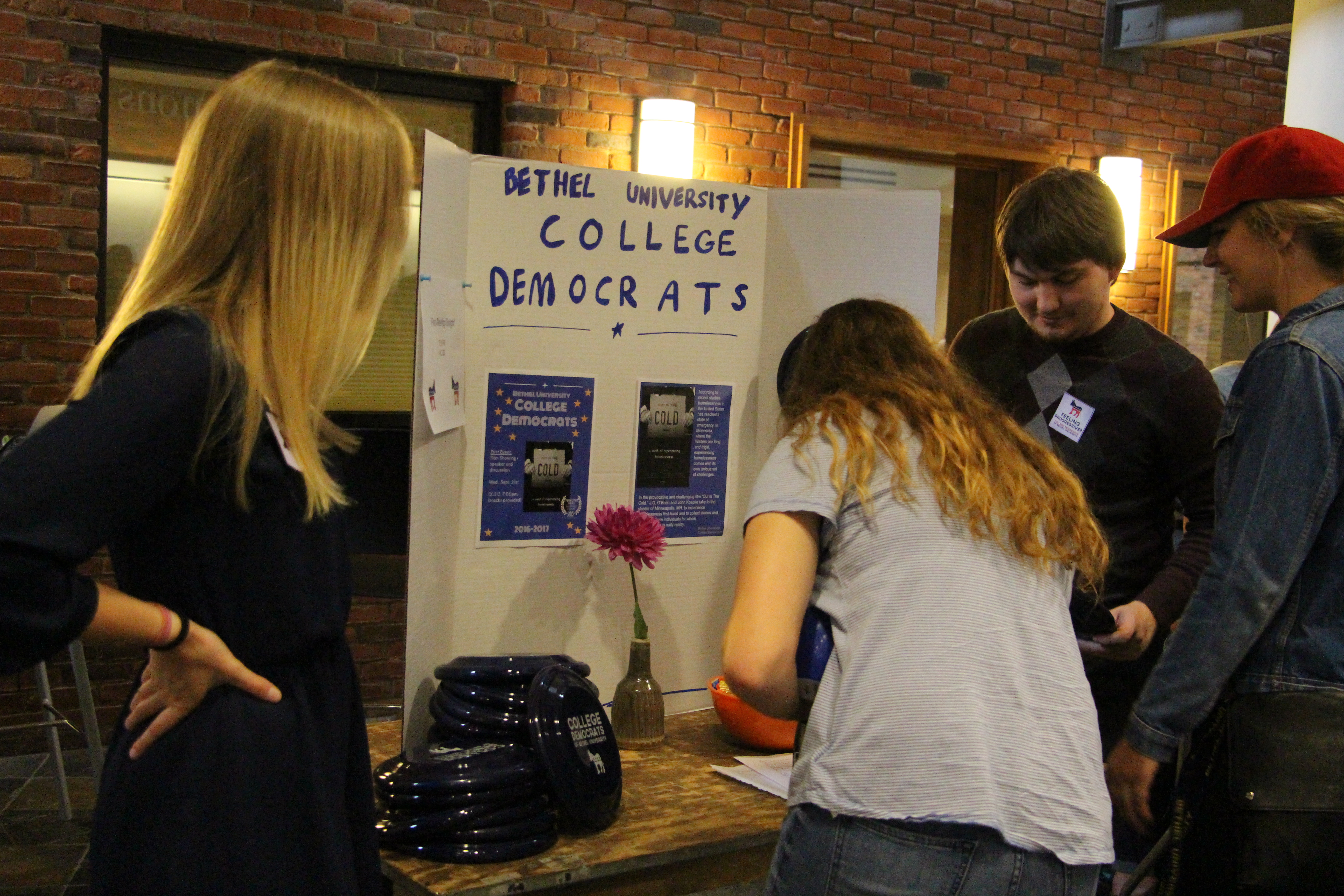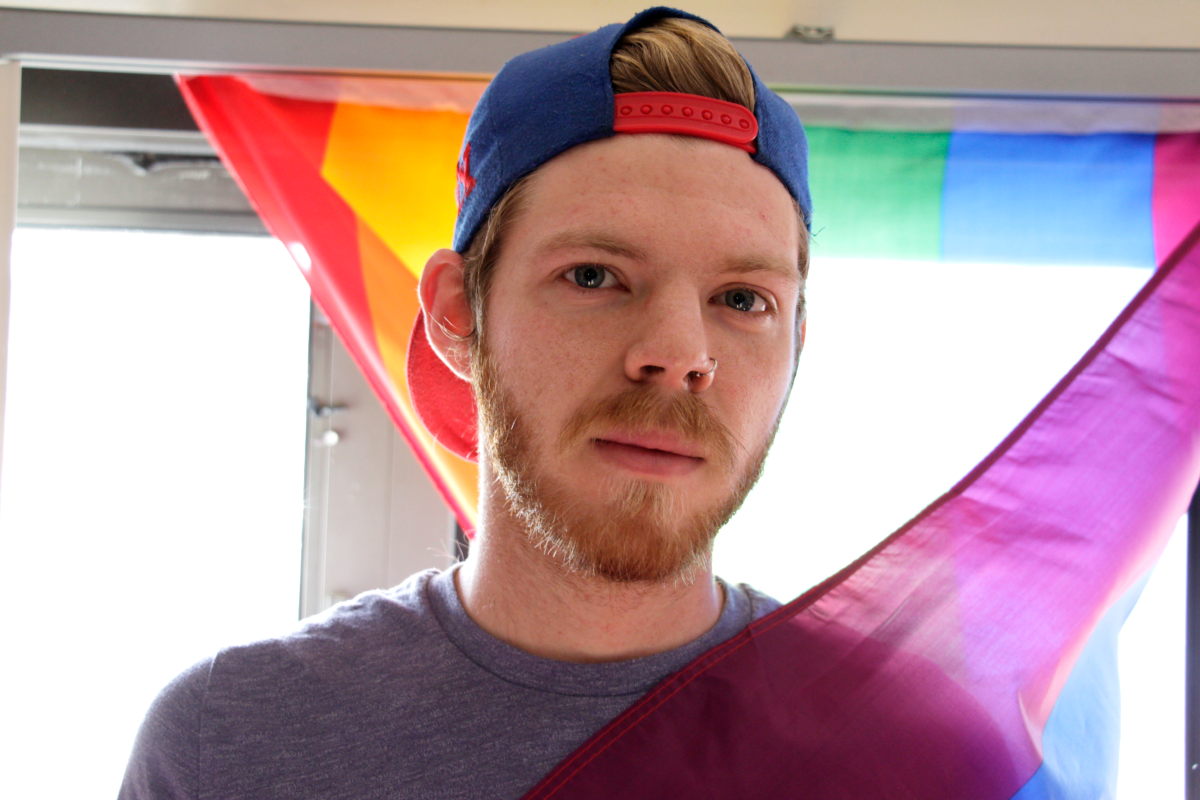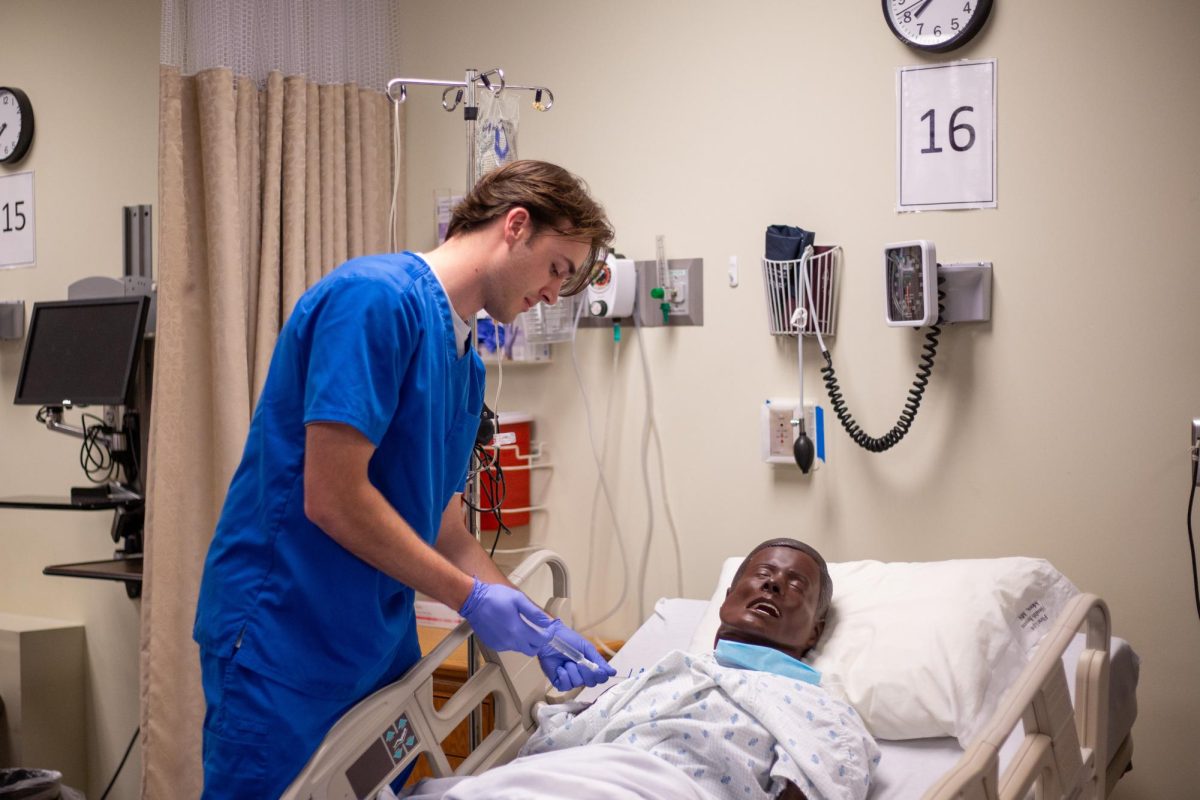Augsburg College boasts several designated safe spaces on their campus for interfaith dialogue and LGBTQ-support groups. How does Bethel compare in terms of safe spaces for students?
By Callie Schmidt
The New York Times published an article in November about Augsburg College, located in Minneapolis, Minnesota. The article detailed the story of one Augsburg student who reached out to Augsburg’s Muslim chaplain and received spiritual support, despite her non-Muslim beliefs. The catch? Augsburg is a private Lutheran college.
Augsburg is in the Minnesota Intercollegiate Athletic Conference (MIAC) along with Bethel, and both schools have approximately 3,000 undergraduate students enrolled. The article featured Augsburg’s Muslim chaplain, Fardosa Hassan, who helps students engage in interfaith dialogues and integrates Muslim students. Hassan is also the adviser for Augsburg’s Muslim Student Association.
Although Augsburg is affiliated with the Evangelical Lutheran Church in America (ELCA), 17 percent of students are Lutheran, 9 percent represent the Catholic Church, 20 percent represent other Christian denominations and 8 percent represent other religions, according to their website.
Bethel is affiliated with Converge Worldwide (formerly the Baptist General Conference), and serves students from more than 65 Christian denominations, according to their website.
Bethel philosophy professor Sara Shady and student leader Janna Burger, senior philosophy major, run Bethel’s Better Together club. The club facilitates respectful interfaith dialogue and holds events to help students dismantle harmful stereotypes.
Burger defines a safe space on a college campus as a place where students can be present together and be able to express themselves, their beliefs and their doubts, without fearing judgement or criticism.
Burger believes that not all students think Bethel is a safe place.
“There are some students, such as myself, who don’t necessarily identify with the Christian faith, and we wanted a place for them,” she said.
Burger created Better Together with the intent of allowing students to dialogue about faith differences on campus, whether they identify as a Christian or not.
“The voices of students who don’t identify with the Christian tradition, who might identify more liberally with the Christian tradition, who are questioning, or just maybe come from more sacramental or Catholic background – anything that’s not mainline Bethel, evangelical – those voices are silenced,” Burger said.
“It makes me sad to hear this,” Miranda Powers, Associate Dean for Campus Engagement, said.”We desire for Bethel to be a place where all students feel safe and connected. College is such a wonderful time to explore and deepen faith, and Bethel is a great place to do that. I would hope that all students would have opportunities here to do that – no matter where they might be in their journey.”
Contrary to Burger’s beliefs, sophomore business major Nick Germscheid feels Bethel is a safe space. He defines a safe space as somewhere where you feel comfortable.
“It’s one of the safer campuses around the nation, and to add on it it has the Christianity aspect tied to it,” Germscheid said.
Augsburg has support groups such as Queer Indigenous and People of Color, Queer Pride Alliance and Augsburg Indigenous Student Association. Bethel has openly LGBTQ students but does not have any official LGBTQ support group or club.
Bethel’s Covenant for Life Together identifies character qualities and actions that Bethel believes should not be present in the lives of believers. Homosexual behavior is included in the list of examples, along with others such as drunkenness, greed, thievery and dishonesty.
“We believe that sexual intercourse and other forms of intensely interpersonal sexual activity are reserved for monogamous, heterosexual marriage,” the Covenant states.

Originally from Nebraska, freshman social work and reconciliation studies double-major John Mark Shields struggled to adjust to the new environment, as well as the challenge of being openly gay at Bethel.
“I don’t feel Bethel is a safe place,” Shields said. “But I feel there are people at Bethel that can create a safe place.”
Shields defines a safe space as a place where anyone can go and feel the ability to be open and completely themselves without feeling judged or looked at differently.
“It was more of, okay, not only do I have to find a place where I fit in, but it was the question of, am I allowed to be (openly gay) here?” Shields said. “How will the Christians here interact with more of those issues, and will they be open to that conversation? And what does that mean for me in regard to living everyday life, what do I need to keep in check? It was almost like going back into the closet.”
Shields experienced people being very uncomfortable with his gay identity, and had to change some of his living situations. But Shields has also experienced people being open to having conversations about it.
I would rather go to a school where everyone denied me as a valid Christian and condemned me then go back to condemning myself. –John Mark Shields, freshman social work and reconciliation major
Shields wrote he was openly gay in the testimony of his application to Bethel.
According to Shields, he lived a part of his life lying about who he was before he was openly gay, and he felt unable to love himself because of it. He struggled, questioning whether he deserved love from God or other people.
“When you reach that point of self actualization and self-love, you never want to go back,” Shields said. “I would rather go to a school where everyone denied me as a valid Christian and condemned me then go back to condemning myself. Christ’s love is what fills me, and if I cannot be true to the identity I have been blessed with then I am not to love Christ and others and accept the love Christ and other have for me.”

Since Bethel does not have an official LGBTQ support group, Shields found places with people whom he could trust to create a safe space, such as his resident assistant in his dorm, people in College Democrats and people in the Cultural Connection Center.
“There have also been some good professors and people at Student Life who I’ve met with that have gone above and beyond in making me feel safe in the environment here at Bethel,” Shields said.
“It’s always great to hear that our students leave interactions with Student life feeling cared for,” Powers said. “I believe this happens a lot individually – that many students leave interactions with faculty and staff on this campus and feel known and cared for. I hope that (Bethel students) will continue to find that in many interactions while here at Bethel.”

![Nelson Hall Resident Director Kendall Engelke Davis looks over to see what Resident Assistant Chloe Smith paints. For her weekly 8 p.m. staff development meeting in Nelson Shack April 16, Engelke Davis held a watercolor event to relieve stress. “It’s a unique opportunity to get to really invest and be in [RAs’] lives,” Engelke Davis said, “which I consider such a privilege.”](http://thebuclarion.com/wp-content/uploads/2024/05/041624_KendallEngelkeDavis_Holland_05-1200x800.jpg)

















Rachel • Mar 30, 2017 at 12:26 pm
You’re brave JohnMark! I love that you are reminding us that we cannot truly claim to love the Lord if we are ostracizing those around us. People should be able to be open and vulnerable about where they are at in life and welcomed into community, just as Jesus did all through Scripture.Christ loved people and welcomed them as they were, and then did work and moved in their lives. We should be loving people and inviting them into our lives just the same regardless of anything else.
Karen Hummel • Mar 25, 2017 at 1:37 am
So I am confused. Bethel has a covenant life together statement that students must agree to and sign saying that they are Christians and that behaviors such as homosexuality are sinful. And yet they are accepted into the University ? And then these openly sinful behaviors are allowed to continue? What then is the purpose of the covenant life together statement anymore?
John Mark Shields • Apr 1, 2017 at 9:03 pm
Karen, I would love to just clarify statements in the article and the difference between being gay and having gay sex. Being gay is an identity and what is said in the covenant, that I personally signed, says to not engage in homosexual behavior. Homosexual behavior is not being gay in general but just having gay sex. Being gay is not breaking the covenant. Yet it has the perception of that to many students especially LGBTQ+ students. Being gay is not breaking the covenant which is why students like me are allowed to be at this school and still honor the covenant. It is still significant and can be followed even by LGBTQ+ students. So I do hope that helps with the confusion.